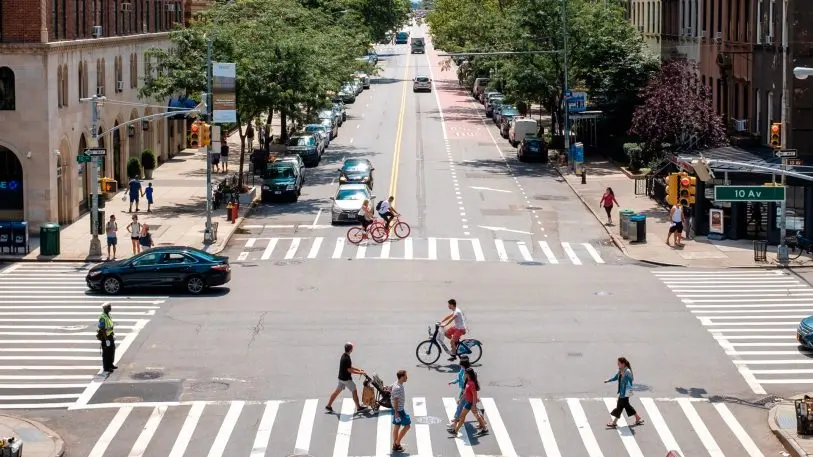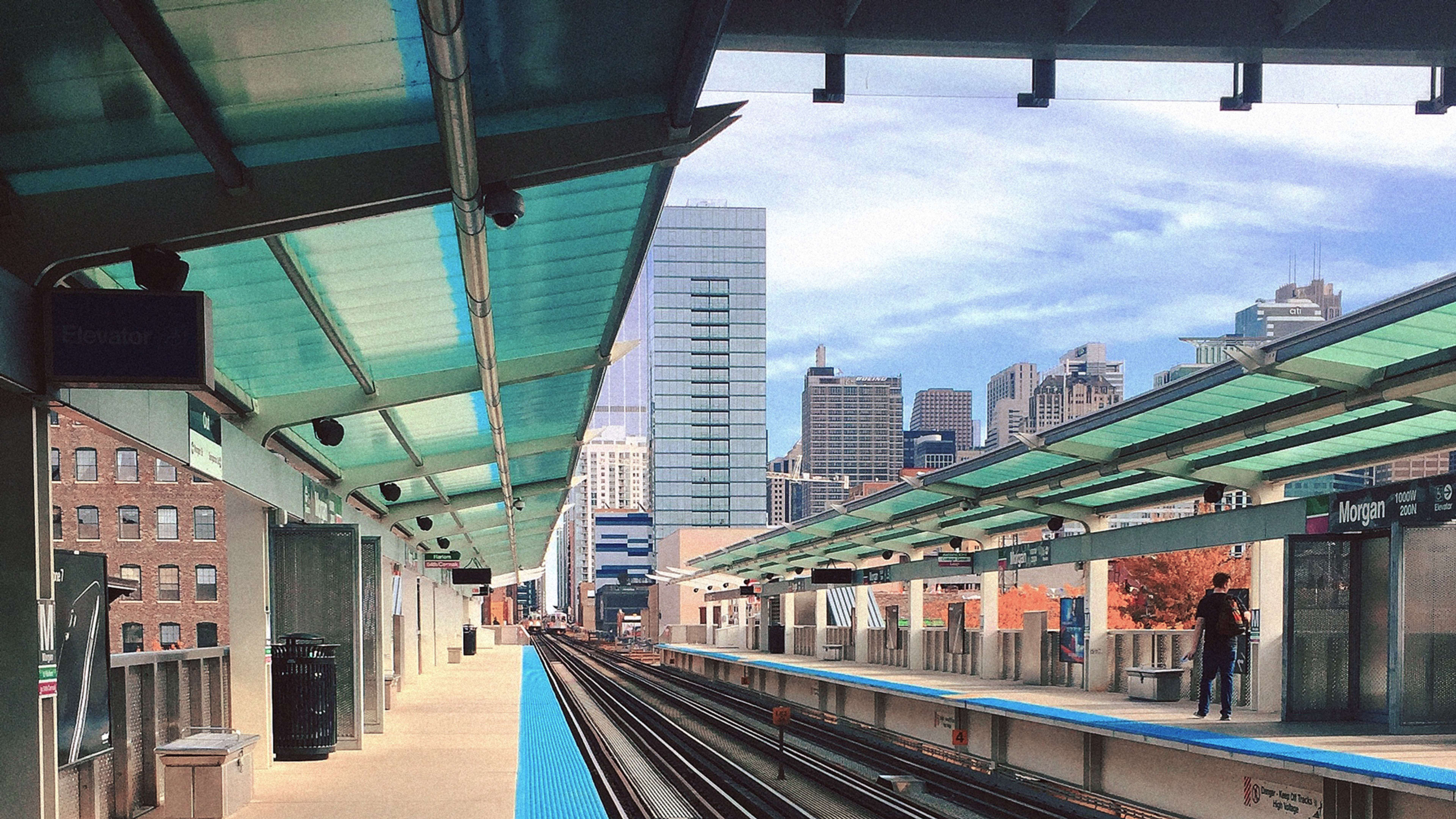Last year, 238 cities across North America submitted themselves to Amazon as the hopeful site of its next headquarters, spurred by the promise of 50,000 high-paying jobs and $5 billion in investment. In January, the tech giant narrowed that pool down to 20.
Amid some of the weird stunts designed to entice the company–Stonecrest, Georgia offered to change its name to Amazon, Georgia, and Calgary, Alberta tweeted that it would fight a bear for HQ2–the cities that submitted had to do some real soul-searching to decide if they were worthy to appeal to Amazon.
What Amazon wanted from a potential HQ2 host city was the following: a metro-area population of over 1 million people, a stable business environment, proximity to major highways and arterial roads, and access to mass transit and an airport.

The breathless bidding war that is the HQ2 search has masked the fact that these are really not exceptional demands. In fact, most of these criteria are things cities should striving to meet not for the sake of attracting some outside company, but to better support their existing workforce, and draw smaller, more diverse companies and sectors that may not have the flashy appeal of Amazon, but could equal it in impact.
For instance, cities could focus the same energy they expended on their HQ2 bid on supporting a strong freelance workforce and startup community. Across the U.S., there are approximately 53 million freelancers–people who work on a contract basis for multiple entities, rather than being employed by a single company. They make up around 36% of the total workforce, and collectively, they contribute around $1.4 trillion to the U.S. economy. If current trends hold steady, by 2027 the majority of Americans will be freelancers, according to a study commissioned by the freelance marketplace Upwork.
“We ask our network of freelancers what some of the important factors are when they are deciding where to live,” says Upwork CEO Stephane Kasriel. “And the number one is a strong network of business professionals, like lawyers and accountants, that can help them run their own business–freelancers are like startups themselves.” And following close behind, Kasriel says, is a local community of other similar professionals. “The more of a critical mass of freelancers you can get in a place, the more effective they all become,” he adds.
Cities should listen to these needs, and some are doing so already: Last fall, San Francisco debuted a “gig economy starter kit for freelancers” that includes free online classes and guides for contract workers spanning tax help, career planning, and professional networking tips. Also last year, New York City introduced a first-of-its-kind law that offers the 400,000 local freelancers added protections, including mandatory contracts for work totaling over $800 and stricter payment requirements. Under the new law, freelancers are also entitled to legal consultation through the city’s Office of Labor Policy and Standards.

These are great steps forward, but cities could also go further and consider how initiatives like Universal Basic Income may be able to support freelancers and startup entrepreneurs just getting going in their careers, or how they could structure housing programs to ensure rents remain affordable to people who want to live there.
Those ideas could tie neatly into initiatives like those launched in New York City and San Francisco to create a strong policy framework for freelancers. But what independent workers also need is a stable and accessible on-the-ground community. “That’s a reasonably easy thing for cities to do,” Kasriel says. “Whether that’s organizing events or having dedicated coworking spaces with good, free Wi-Fi and access to public transportation, there’s a lot for them to think about.” Via freelancer networking events, cities could connect professionals like lawyers and accountants to contract workers who could use their services, and by creating affordable spaces for freelancers to come together, they should share tips and build out a community that’s often missing for people who work independently.
Brad Martin, a trained architect who works on virtual reality in the design process, currently works as a freelancer in St. Louis. Amazon bypassed that city in January when it narrowed its search to 20 cities, claiming it did not have the type of talent pipeline or workforce base to feed the types of jobs required for big tech companies. That may be true: St. Louis was a predominantly manufacturing town that’s slowly rebuilding its workforce identity. But a large part of its transformation focuses on attracting startups and freelancers. In the past several years, St. Louis has launched a large handful of incubators, including T-Rex, which Martin has worked with, and has developed several startup competitions and venture funds with backing from the state and local enterprises. They’ve also founded Arch Grants, an organization that specifically funds startups that locate their early stages in St. Louis, which in turn have created 1,500 jobs. Martin applied for an Arch grant this year, drawn to the opportunity for mentorship and further investment and contract opportunities from the network.
St. Louis’ patchwork approach of attracting early-stage startups and independent workers, and converting many of its old, empty manufacturing buildings into affordable coworking spaces, is a strategy that’s allowing the city to play host to a diverse business culture, rather than relying on one monolithic business. And it’s still relatively affordable, which makes it an easier city for freelancers and startups to put down roots.
Kansas City, another metro area that didn’t make the Amazon finalist cut, is in a similar situation. Like St. Louis, it’s also doubling down on creating startup accelerators and coworking spaces, but the Amazon bid also woke the city up to its need to provide tech education and internship resources for its students and high school kids. “We want to think about how we can create those career pathways through credentialing and externships and partnerships with businesses in the community to give kids real-world skills,” says Larry Jacob, VP of public affairs at the Kauffman Foundation, a local nonprofit focused on entrepreneurship that helped with Kansas City’s Amazon bid. Going forward, those opportunities will help the city retain tech talent that’s often lost to business hubs like San Francisco and New York by encouraging native Kansas City youth to use the city as a foundation to launch their own enterprises.
It’s very likely that youth going through these types of programs will go on to become freelancers or start their own small enterprises. And that reality comes full circle back to the need for cities to start investing more proactively in support networks for these types of workers now. While undoubtedly, the city that ultimately wins over Amazon in the HQ2 bid will see some economic benefits, those for whom the competition galvanized more creative thinking about how to support a modern workforce will be able to adapt more quickly and interestingly to a swiftly changing economic landscape.
Recognize your brand’s excellence by applying to this year’s Brands That Matter Awards before the early-rate deadline, May 3.
